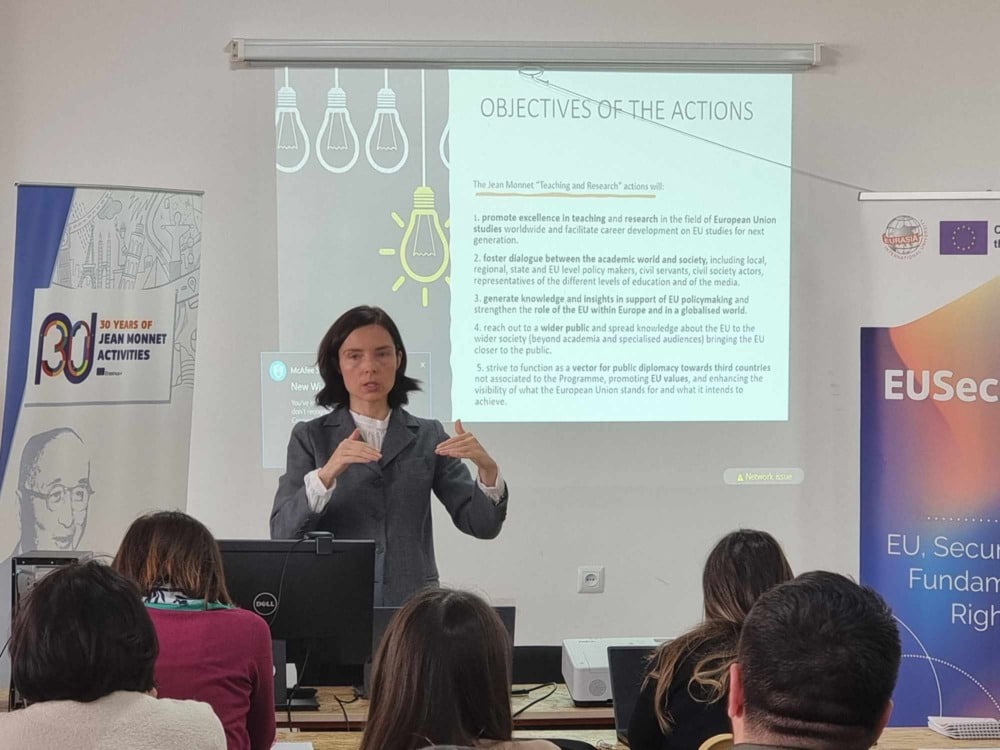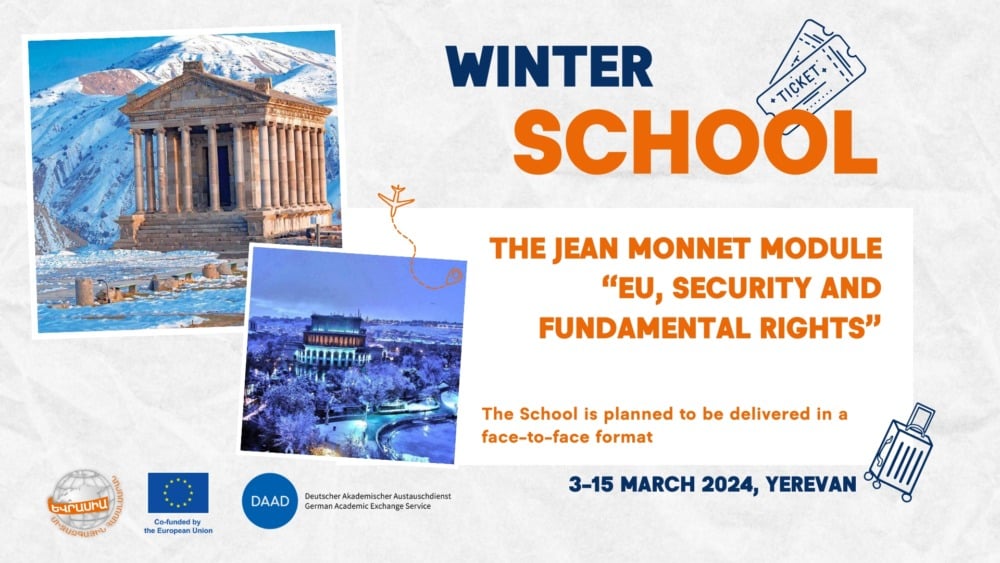Jean Monnet Summer School 2023
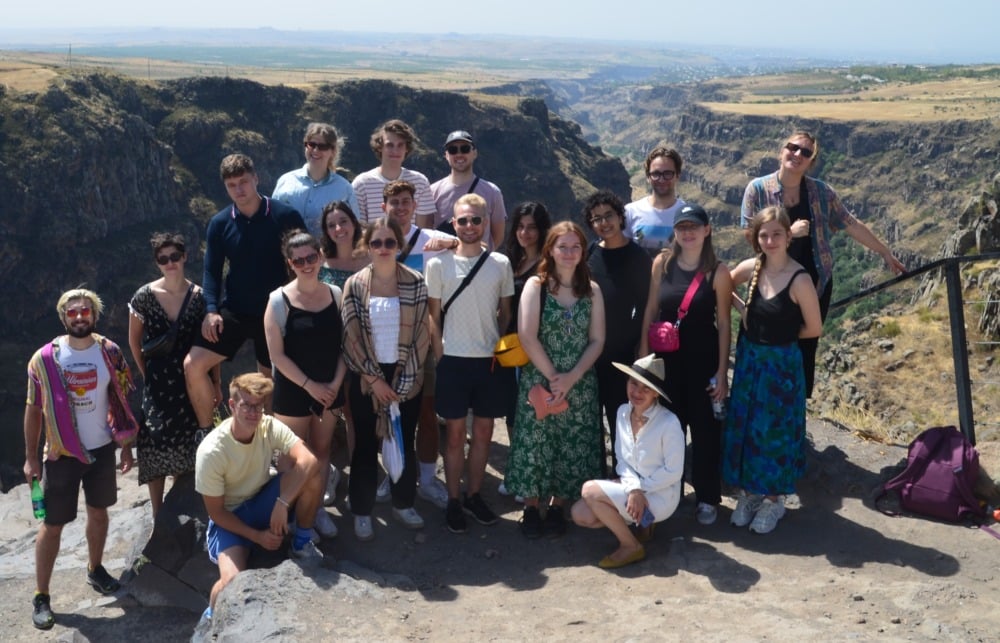

From August 14 to 25th, Eurasia International University hosted an intensive Jean Monnet Summer School, featuring a diverse range of academic activities and social events.
A total of twenty-seven participants, hailing from leading European and Armenian universities, including the European University of Frankfurt Oder, Freie Universität Berlin, Europe University of Viadrina, Fulda University of Applied Sciences, University College Dublin, University of Leipzig, University of Trier, London School of Economics and Political Science, Christian-Albrecht University of Kiel, Goethe University of Frankfurt on Main, University of Passau, Nova University, EIU, YSU, and Public Administration Academy, delved into the topic of “Current challenges to International and European Law and Politics: The Security and Human Rights Crisis in the European Neighbourhood.”
The program commenced with welcoming speeches from Dr. Ruben Markosyan, Vice-Rector of EIU, and Mr. Parsa McJacob, Head of the EIU International Cooperation Centre. Dr. Anna Khvorostiankina, the academic coordinator of the Summer School, outlined the educational and socio-cultural activities planned for the duration.
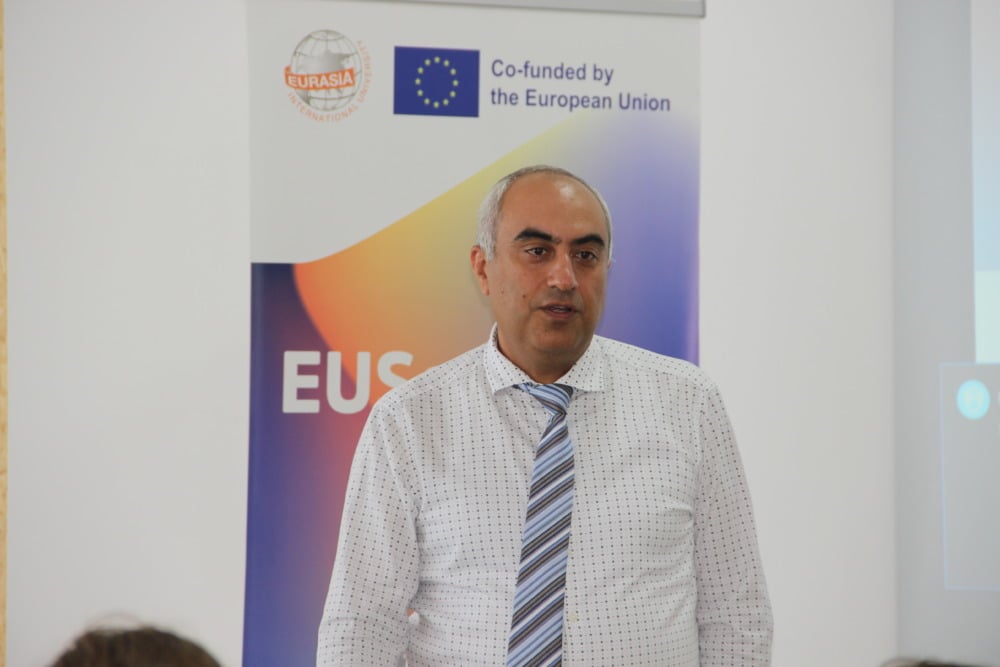

The first week, spanning from August 14th to 18th, concentrated on contemporary challenges facing the international legal order. Through interactive lectures and simulation exercises, participants engaged in discussions on topics related to International Humanitarian Law, International Human Rights Law, and International Criminal Law.
In addition to core lectures by Dr. Nawras Layous, guest speakers enriched the learning experience. Dr Gevorg Melikyan introduced students to “The Security Challenges in the South Caucasus and Hybrid Threats,” while Mr. Igor Mirzakhanyan provided a comprehensive analysis of violations of International Humanitarian Law and International Human Rights Law by Azerbaijan in the context of the Nagorno-Karabakh conflict and Azerbaijan’s aggression against Armenia.
Ms. Diana Karazyan and Ms. Anastasia Makaryan from the Office of the Representative of the Republic of Armenia in International Legal Matters shared insights into the institution’s work and the professional development opportunities available to Armenian and international interns.
On August 16th, participants visited the Constitutional Court of the Republic of Armenia, where they met with the Vice-President of the Court, Justice Vahe Grigoryan. Discussions centred on the evolution of constitutional justice in Armenia and a detailed analysis of judicial argumentation in the recent Decision of the Constitutional Court No. 1680 regarding the compatibility of the Rome Statute of the International Criminal Court with the Constitution of Armenia.
Justice Grigoryan explained the rationale behind the axiological arguments employed by the Constitutional Court, emphasizing Armenia’s mission to contribute to international efforts to prevent and combat genocide, crimes against humanity, war crimes, and crimes of aggression, given its history as a nation of genocide survivors. The students also gained a deeper understanding of this axiological reasoning through a visit to the Genocide Museum before their meeting at the Court.
The first week concluded with a full-day training session on Humanitarian Project Management led by Dr. Nawras Layous. Interactive exercises were complemented by a discussion with guest speaker Ms Anahit Melkumyan, who presented the work of SOS Children’s Villages Armenia aimed at protecting children’s rights, particularly in conflict-related contexts.
The second week of the Summer School, spanning from August 21st to 25th, shifted its focus to the European Union’s role as a global security actor and its contributions to ongoing reforms in Armenia. Core lectures by Dr Anna Khvorostiankina were enhanced by guest speakers.
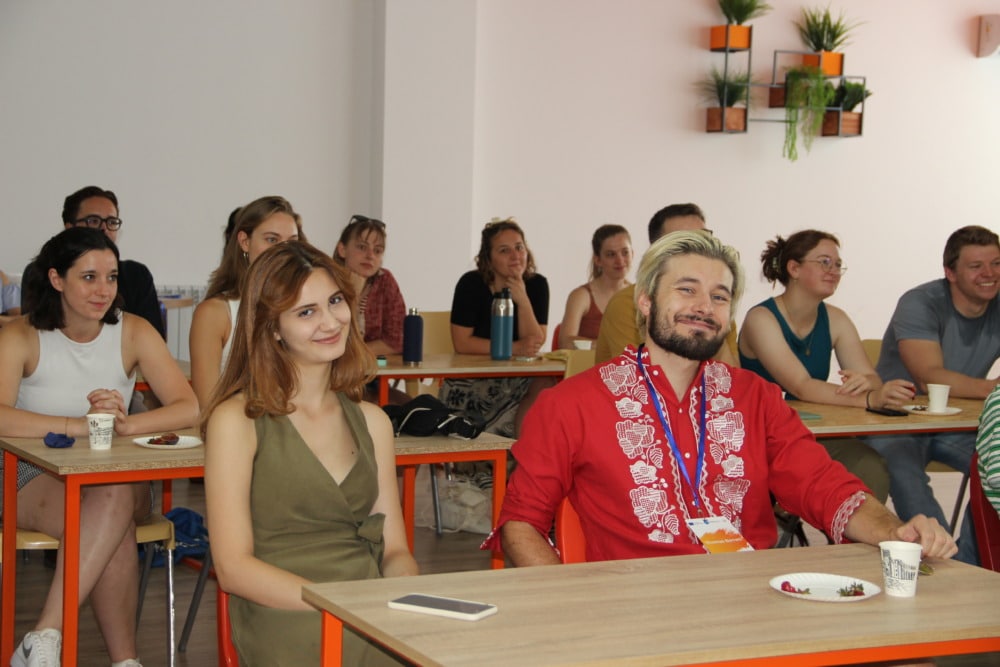

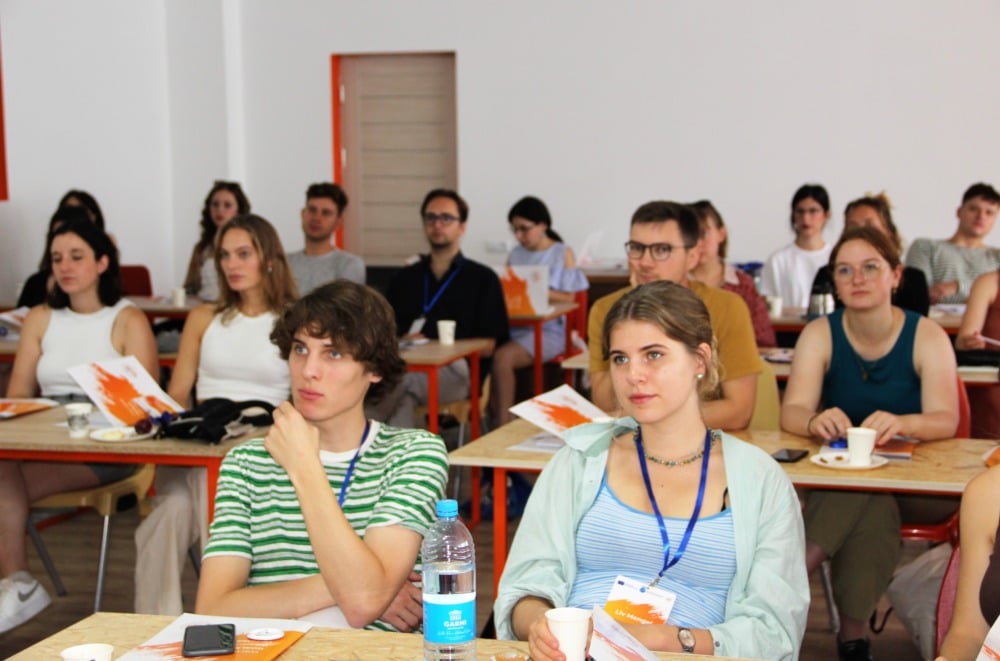

Ms. Sossi Tatikyan conducted a detailed analysis of the EU’s Common Foreign and Security Policy (CFSP) and Common Security and Defence Policy (CSDP), followed by an in-depth case analysis of the EU’s CSDP missions worldwide, facilitated by Ms. Tatikyan’s first-hand practical experience as an officer in some of these missions.
Mr. Thomas Barrett led a discussion on the implications of Russia’s war against Ukraine for the EU through an interactive exercise.
The second week also included two study visits. On August 22nd, students visited the National Assembly of the Republic of Armenia, where they met with Mr. Arman Yeghoyan, Chair of the Standing Committee on European Integration. They discussed EU-Armenia relations, the EU’s role in conflict resolution and domestic reforms, and the performance of the Eastern Partnership (EaP) policy.
On August 23rd, the Summer School was hosted by the EU Delegation to Armenia. The students met with Mr. Jan Plešinger, Chargé d’Affaires a.i. of the EU Delegation, and engaged in a lively discussion about the EU’s projects in Armenia, the EU’s role in the region, and the European Union Monitoring Mission in Armenia (EUMM), a non-executive, non-armed civilian Common Security and Defence Policy (CSDP) Mission of the EU.
The educational portion of the second week culminated in a simulation exercise focusing on the current issues in EU and Armenia policies. After the School, participants received certificates confirming the completion of the program, equivalent to 3 ECTS credits.
The Jean Monnet Summer School was not only about classroom learning and study visits; it also featured a rich social and cultural program that allowed participants to immerse themselves in the local context and learn more about Armenian history, nature, and culture.
The program commenced with a Welcome event at the Masoor Art House, where students enjoyed traditional Armenian singing by the internationally renowned Nairyan Vocal Ensemble, participated in a pottery workshop, and sample delicious traditional dishes. This visit also provided insights into social entrepreneurship and women’s empowerment in Armenia.
The weekend of August 19th and 20th included two long-distance trips. On Saturday, students visited the Hovhannavank Monastery, the Saghmossavank Monastery, and the Kassagh river canyon. On Sunday, they explored the Geghard Monastery and Garni Temple, visited Sevan Lake, Sevanavank Monastery, and Noraduz Khachkars, and enjoyed a fish lunch. Additionally, on Saturday, students delved into the rich history of the Armenian language at the Matenadaran, the Institute of Ancient Manuscripts.


On August 21st, participants took part in a cooking workshop to learn the art and technique of preparing traditional Armenian dolma and arishta. The workshop’s products were served for dinner in a warm and friendly atmosphere, allowing participants to savour the results of their hard work.
The Closing event and certificate awarding ceremony took place at the Armenia Wine Factory. Students learned about the rich history of Armenian winemaking traditions and had the opportunity to taste different wines.
The Closing event was made memorable by students who shared their warm feedback about the Summer School and presented symbolic gifts to the organizers. The EIU Team expressed its delight in collaborating with motivated, knowledgeable, and talented young individuals genuinely interested in Armenia and the region.
Undoubtedly, the personal and professional networks established during the School represent the most valuable and enduring outcomes of the program. We hope these connections will lead to new joint projects and collaborations. We wish our participants success in their professional journeys and look forward to welcoming them back to Yerevan in the future.

